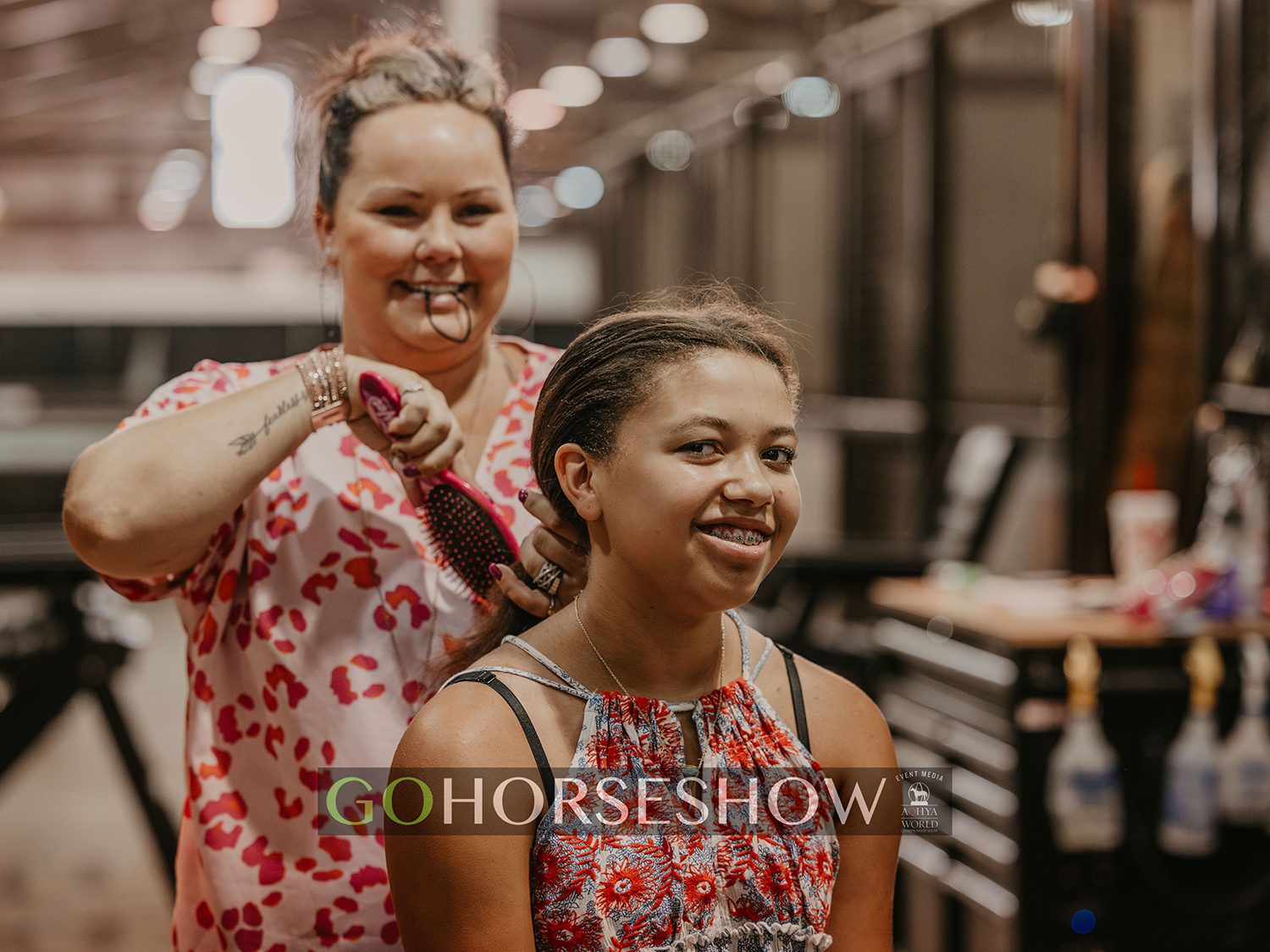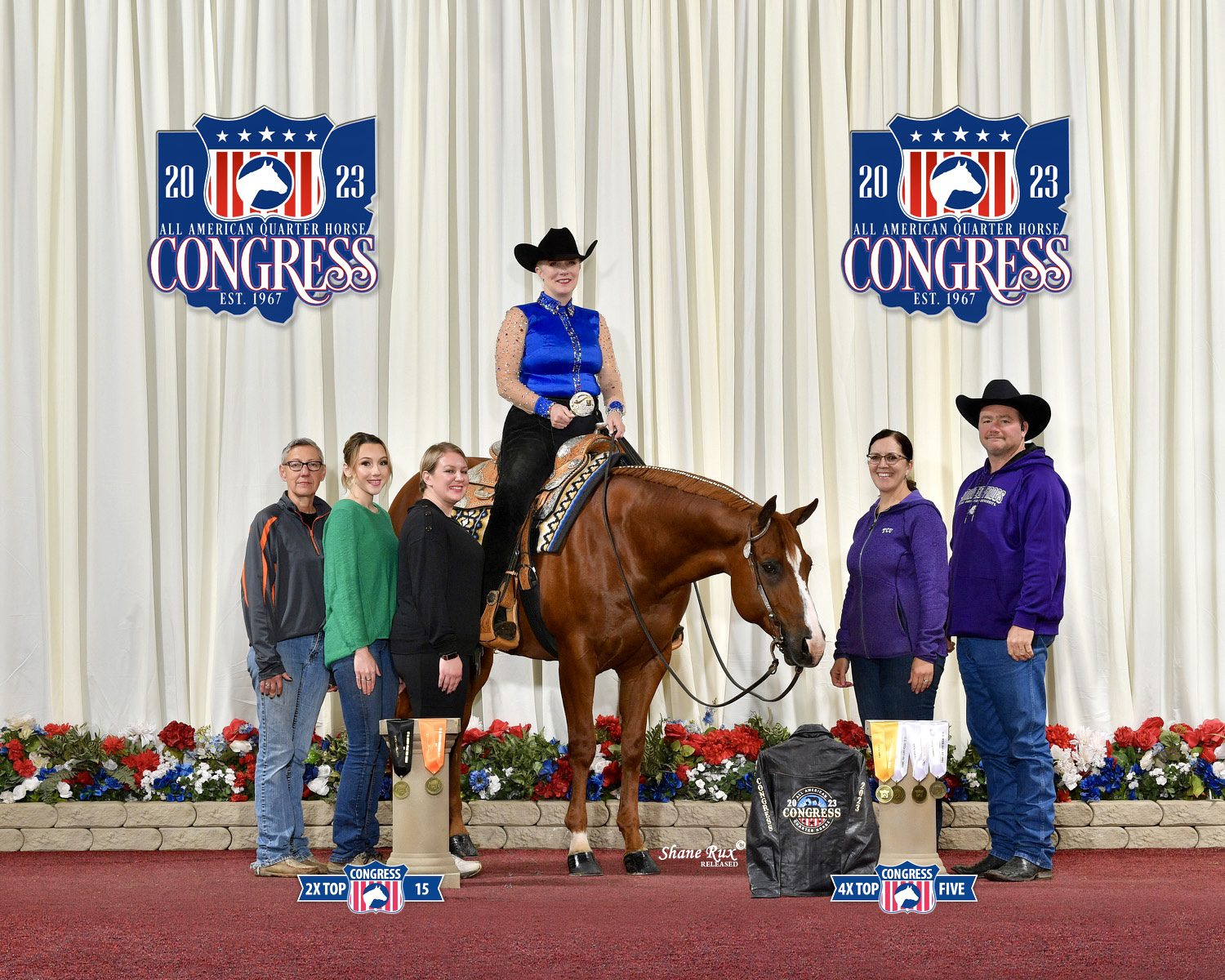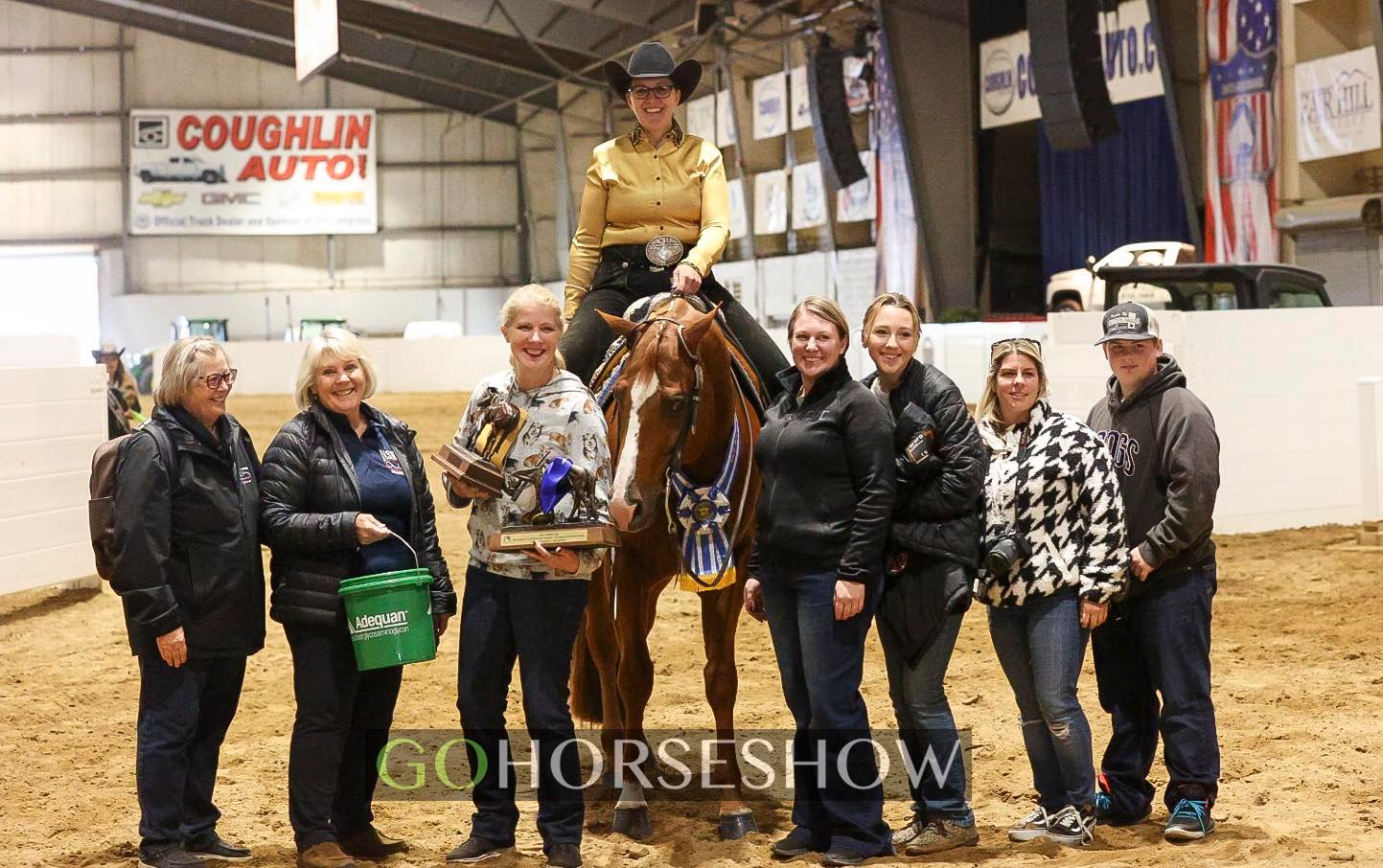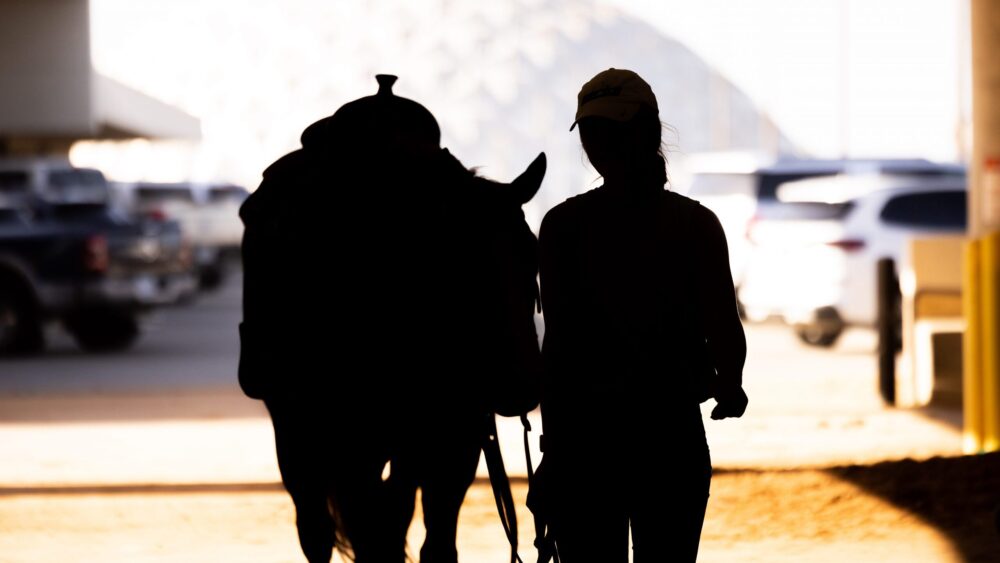Losing motivation happens to everyone – from the highest level athletes to the weekend hobbyists. It can seemingly come out of nowhere or be the result of feeling overwhelmed, overworked, or just plain burnt out.
No matter the cause, having strategies to right the motivational ship can help exhibitors get back on course and re-discover their drive. Professional trainer Ashley Clock of Pilot Point, Texas and Select Amateur exhibitor Heather Lange of Trumbull, Connecticut share their go-tos of how to combat that stuck-in-a-rut feeling.
Take a step away and return refreshed Exhibitors know that top performance at horse shows requires sacrifices in time, money, and energy. It often means heading from work or school directly to the barn, eating late dinners, traveling to shows on the weekends, missing social events outside the horse world, and more. Keeping this up for months on end or year round is draining. Consider this permission to take a step away.
Exhibitors know that top performance at horse shows requires sacrifices in time, money, and energy. It often means heading from work or school directly to the barn, eating late dinners, traveling to shows on the weekends, missing social events outside the horse world, and more. Keeping this up for months on end or year round is draining. Consider this permission to take a step away.
“Personally, when I feel myself getting burnt out, I make sure to take some time off, whether it be for a day or for a long weekend. The break helps me reset and take a break from my horses, and it’s great for them to have a break from me as well,” Clock says.
Don’t fall into the trap of stressing about your horse, its training, or yourself during this time, though, which some passionate competitors do. Normalize sporadic mental breaks as a key component of the training process instead.
If it relieves self-pressure, schedule breaks into your yearly show calendar so that they are sure to happen and feel like a purposeful component of your training program.
Tap into outside hobbies and friends It’s easy to get wrapped into all things horses when showing is such a huge commitment. But, staying in touch with outside hobbies and friends can be a rewarding way to refresh motivation. If those hobbies are physical ones that build cardio health and physical strength, they are likely helpful in the saddle, too.
It’s easy to get wrapped into all things horses when showing is such a huge commitment. But, staying in touch with outside hobbies and friends can be a rewarding way to refresh motivation. If those hobbies are physical ones that build cardio health and physical strength, they are likely helpful in the saddle, too.
“I have learned over the years that having a life outside of the horse business keeps me able to mentally still enjoy what I do. I have groups of friends through my son’s sports activities who know nothing about the horse business, which I appreciate because it allows me to let my mind go and do something else,” Clock says.
Those same friends can become the proverbial shoulder to cry on if things go awry. No one needs to understand horse shows to understand disappointment and frustration, so having a person – in the industry or not – to vent to can help offload stress when things are just not going as well as planned.
“It’s really easy to lose confidence in training horses. One bad show or even a bad ride at a show and that feeling of not being good enough for this business can creep in. You have to learn to have a couple close friends that you can talk to and vent to and go to for advice. I have learned that all of us horse trainers are the same, and it’s easy to get down on yourself and want to quit, but we need to hold each other up and keep going,” Clock says.
Lange agrees, feeling especially grateful for her friends who share her passion. “The best strategy is a friend who gets it; someone who understands the hard work and the drive, the highs and the lows. That’s my friend Kim. We can usually keep each other’s spirits up, but she’s also a shoulder to lean on when necessary.”
Tune in to tune out
Sometimes, closing the barn door and opening a book or tuning into a podcast can be a refreshing restart. A simple Google search yields more motivational resources – think speeches, audiobooks, Ted Talks and podcasts – than any one person will ever have time for.
But tuning into just one during your commute or while prepping dinner can change your outlook and provide ideas and strategies to fight whatever motivational sap is draining you.
 Another motivator can be horse show videos. Consider watching a run or a class that someone you look up to showed in to rekindle waning motivation.
Another motivator can be horse show videos. Consider watching a run or a class that someone you look up to showed in to rekindle waning motivation.
Reminding yourself of those highly skilled exhibitors can be the needed boost to get back to chasing goals. Alternatively, watch videos of your own gos, notice what’s working and what needs improvement and set goals for the near future. Clock does exactly this.
“After all the shows, I like to go over the videos of me showing and my clients showing. I study them to figure out what we need to do to get better and it makes me push myself in my training program to get better,” she says.
Lange does the same. “I watch lots of videos – of myself, my trainer, and other riders. Watching an older ride reminds me how far I have come. Watching a great ride motivates me to keep working. I save my favorites on my phone or computer to check in once in a while,” she says.
She recalls her 2019 World Show as an example of using past performance as a motivator. “At the 2019 Select World Show, I was 0 for 4 on patterns. I couldn’t do anything right. We laugh about it now, but it set me up stronger for the 2020 season,” Lange says. Part of that was setting strong goals.
Revisit goals
Perhaps no better motivator exists than goal setting. Small, realistic, and attainable goals that build toward those grander scale goals are the way to go. When goals are small and attainable in a relatively short time frame, it becomes easier to celebrate small progress. Consider adopting the philosophy of getting one percent better every day.
Soon, those small improvements add up. If, for example, a goal is to improve the speed and accuracy of a horse’s showmanship pivot, racing into a 540 degree turn on day one is likely not going to feel successful, but trying for a touch faster but still perfect 180 may be the first stepping stone, and both horse and showman will feel successful sooner.
 “If I’m working toward an end of year goal, I plan out what shows and smaller goals will best help me get there. There are a lot of little goals throughout the year that help make the bigger goals happen,” Lange explains.
“If I’m working toward an end of year goal, I plan out what shows and smaller goals will best help me get there. There are a lot of little goals throughout the year that help make the bigger goals happen,” Lange explains.
Clock understands the benefit, too. “I’m a huge fan of goal setting. I set a series of smaller goals that hopefully stack up to the bigger year end goal,” Clock says. “I have the whole show schedule planned out with bigger and smaller shows. We like to pick a new show each year, which lets us see a new place and meet new people, which also keeps things fresh.”








